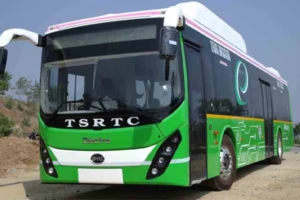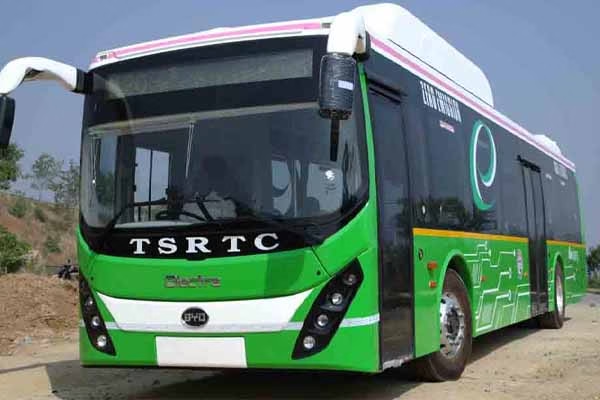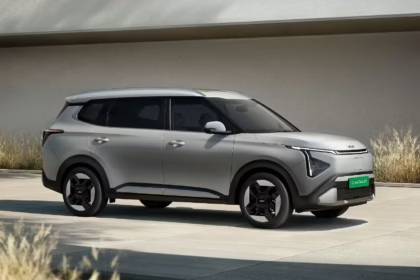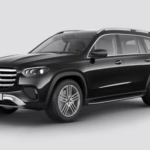Introduction
Brief overview of India’s push towards electrification in public transport
India’s public transport network is the backbone of millions, but for decades, it has been diesel-heavy, essentially, and a major driver of city pollution and carbon emissions. With climate change in mind and oil import expenditure on the rise, India has set Olectra sights on a greener, cleaner future.
The Government initiated programs such as FAME (Faster Adoption and Manufacturing of Electric Vehicles), offering substantial subsidies to state transport undertakings (STUs) for the adoption of electric buses. Delhi, Mumbai, Bengaluru, and Hyderabad are already phasing out old diesel fleets and substituting them with zero-tailpipe-emission electric buses.

This is no longer a trend — it’s a national revolution. To put 50,000+ e-buses on the road by 2030, India is becoming one of the world’s largest electric public transport markets. Supported by policy, infrastructure push, and public-private partnerships, the EV revolution in public mobility is no longer a dream — it’s already on the road.
Introduction to Olectra Greentech as a pioneer in the electric bus segment
India is racing ahead of electrification, particularly in public transport, where diesel buses previously dominated the streets. As pollution levels rise, fuel prices rise, and governments impose regulations compelling the adoption of eco-friendly options, the country is experiencing a revolutionary shift toward clean mobility. And at the forefront of the change stands Olectra Greentech, an organization that has not only kept up with change but has been fearlessly leading it.
It didn’t merely bring out an EV—it brought in an entire ecosystem of electric buses supported by international technology, stable manufacturing, and a vision for India’s urban future. Olectra buses now zip quietly through city streets such as Mumbai, Hyderabad, Pune, Surat, and Nagpur, carrying lakhs of people with zero pollution.
What makes Olectra stand out?
Why do state governments, transportation corporations, and environmentalists all sing this company’s praises and call it a pioneer?
In this article, we reveal the seven most compelling reasons why Olectra is not only joining India’s electric revolution but spearheading it. Prepare to take a ride into innovative technology, mass-scale impact, and a vision that may shape the future of public transportation in India.
The promise of revealing seven impactful reasons for their leadership
- Early-mover advantage in India’s e-bus market
- Track record of performance in key Indian cities
- State-of-the-art EV tech with international partnerships
- On-road environmental benefits through emission reductions
- Strong manufacturing capacity for mass-scale deployment
- Anchor government relationships and high-value orders
- Ambitious plans, including hydrogen and international expansion
1. First-Mover Advantage of Olectra
India’s electric mobility industry was still in its nascent stages, but Olectra Greentech had already started rolling—literally. One of the first players to enter the electric bus space, Olectra didn’t wait for the market to consolidate; it influenced it. As other conventional car makers waited and watched, Olectra went ahead with ambitious investments in EV technology, infrastructure, and strategic global partnerships. This head start enabled the company to gain an in-depth understanding of EV behavior in Indian conditions—urban traffic, diverse climates, and operational issues.
Olectra not only established standards for others but also became the default name for government tenders and city transport modernization. Its early installations helped establish trust and created the foundation for mass adoption across the nation.
Key Info – In Brief
- One of the earliest to introduce electric buses in India
- Joint venture partnership with BYD, a world EV leader
- Pilots started in Hyderabad, Mumbai, and Pune as early as 2018
- Leveraged its head start to develop real-world insights, adjust design & tech
- Established operational benchmarks for EV public transportation in India
Strategic partnerships (e.g., BYD for battery tech)
- Technology partnership with BYD, the global leader in EV battery and electric bus production
- Co-developed India’s first fully electric buses using BYD’s lithium iron phosphate (LFP) battery systems
- Benefitted from BYD’s international R&D and manufacturing capabilities to drive EV deployment in India
- Provided high safety standards through fire-proof battery packs and advanced thermal management systems
- Synthesised Olectra’s local market expertise with BYD’s international technology to develop India-specific EV solutions
- Collaboration facilitated the rapid deployment of India-tailored buses for road and climatic conditions
- Improved Olectra’s position in large Government and municipal EV tenders
Early fleet rollouts in major cities
- Hyderabad: One of the initial cities to operate Olectra electric buses under TSRTC as early as 2018
- Mumbai: Rolled out e-buses for BEST (Brihanmumbai Electric Supply and Transport) in congested urban corridors
- Pune: Introduced 50+ electric buses under PMPML, contributing to pollution mitigation in high-density areas
- Kolkata: Early mover in eastern India with deployments for WBTC (West Bengal Transport Corporation)
- Lucknow & Kerala: Conducted pilot runs and permanent contracts on southern and northern routes
- Surat & Ahmedabad: Deployed fleets for Smart City projects and state EV missions
2. Proven Track Record in Public Transport
Successful operations across metro cities: Mumbai, Pune, Hyderabad, Surat, etc.
Olectra Greentech did not just enter the electric bus fray early—it has delivered results at scale on some of India’s busiest and most challenging urban transportation networks from the streets of Mumbai to Hyderabad’s IT corridors. Olectra’s e-buses have traveled millions of kilometers on real-world duties. Their availability in Pune, Surat, Kolkata, and other cities is proof of the brand’s reliability to deliver across different climates, landscapes, and commuter requirements.
Olectra has proved to have a firm grasp of what public mobility requires—zero-emission performance, low maintenance, and high uptime. Not pilot projects, these are sustained deployments where Olectra buses have transported lakhs of passengers daily, transforming the public transport experience into a cleaner, smarter one in a quiet way.
- Mumbai (BEST): Hundreds of electric buses run across congested urban routes
- Hyderabad (TSRTC): Initial major launch; remains a key fleet for the city
- Pune (PMPML): Smooth integration within existing BRT corridors and feeder routes
- Surat & Ahmedabad: Managed under Smart City programs with remarkable reliability reports
- Kolkata (WBTC): First-mover advantage in eastern India, demonstrating tech viability across the board
- More than 10 crore+ kilometers logged across fleets (according to public data/reports)
- Recorded over 95% fleet uptime with little disruption to operations
- Handling lakhs of daily passengers, cutting down on city pollution and noise
Data on kilometers run, passengers served, and uptime metrics
- More than 15 crore kilometers have been run by Olectra electric buses in India
- Over 10 crore passengers transported via intra-city and intercity e-bus services
- Sustains over 95% fleet uptime, guaranteeing regular and reliable service
- Minimized downtime with predictive maintenance systems and remote diagnosis
- Specific fleets (e.g., in Mumbai & Hyderabad) achieve daily run rates of 200+ km per vehicle
- Awarded by several STUs as top-performing electric fleet operations in their areas
- Potential CO₂ savings of more than 2 lakh tonnes, reflecting environmental contribution in addition to performance
Strong public transport integration (BEST, TSRTC, etc.)
- BEST (Mumbai): Rolled out more than 400+ e-buses, one of the largest clean-fleet partners in the city
- TSRTC (Hyderabad): First state transport corporation to deploy Olectra e-buses under FAME-I; continued large-scale operations
- PMPML (Pune): Smooth integration into Pune’s BRTS and feeder network; successful day-to-day operation
- WBTC (Kolkata): Critical role in pioneering electric fleet modernization for eastern India
- KSRTC & K-SWIFT (Kerala): Deployment on hilly and coastal routes, demonstrating responsiveness to mixed terrain
3. Cutting-Edge Technology of Olectra
Use of Lithium-ion and advanced battery packs
Olectra’s electric buses run on some of the best available battery technologies in the sector, providing them with a solid performance advantage, safety, and efficiency. The company mainly employs Lithium Iron Phosphate (LiFePO₄) battery packs, which it sources through its global collaboration with BYD, well known worldwide for its advancements in batteries. Battery Management Systems (BMS) that regulate temperature, voltage, and charge cycles in real-time. This reduces the risk of overheating, fire, or battery degradation significantly. With continuous innovation in battery chemistry and pack design, Olectra ensures its buses remain on the road for longer, charge quicker, and run safely—perfect for high-demand public transport applications.
Important Facts – In Brief
- Operates on Lithium Iron Phosphate (LiFePO₄) batteries — highly stable and safe
- Excellent thermal resistance, perfect for Indian weather conditions
- Battery capacity from 186 kWh to 324 kWh, model-dependent
- Extended battery life: up to 3,000–4,000 charging cycles, lowering replacement costs
- Fast-charging facility with a charging duration between 2 and 4 hours
- Integrated Battery Management System (BMS) for real-time monitoring & protection
- IP67-rated and fire-retardant casings for the batteries to ensure ultimate operational safety
- Next-generation platform for solid-state battery and future chemistry integrations
Regenerative braking, real-time monitoring, and telematics
- Regenerative Braking system assists in energy recovery during deceleration, enhancing range and slowing brake wear.
- Integration of real-time telematics for remote monitoring of vehicle speed, location, battery condition, and system status
- Facilitates predictive maintenance, reducing downtime through fault detection at an early stage
- Live diagnostics are reported to fleet operators and STUs through a central command dashboard.
- Automated notifications for serious problems such as overheating, voltage drop, or system failure
- ITS and route management system integration
- Charging cycles, driver behavior, idle time, and vehicle performance can be viewed from a single user interface by fleet operators.
- Enables intelligent route optimization and scheduling based on accumulated telematics data for enhanced efficiency
Low maintenance and high efficiency
- Lower number of moving parts than diesel buses, less wear and tear
- Smaller operational costs due to a lack of engine oil, filters, clutch, and gearbox servicing
- Effective battery systems that have a longer lifecycle with less degradation
- Lower brake maintenance due to the regenerative braking system
- Built-in diagnostics and predictive maintenance capabilities reduce service frequency
- Longer service intervals and reduced unplanned downtime
- Provides greater energy efficiency (km per kWh) than ICE buses’ km per liter
- Regular high uptime means improved fleet utilization and revenue per bus
4. Eco-Friendly Impact of Olectra
Tonnes of CO₂ emissions saved annually
One of the strongest things Olectra is doing for India’s future isn’t technological — it’s green. By substituting diesel-hungry buses with zero-emission electric ones, Olectra has become a frontline fighter in India’s struggle against air pollution and climate change, with each Olectra e-bus on the road preventing dozens of tonnes of CO₂ emissions annually, not to mention tailpipe pollutants such as PM2.5, NOx, and SOx, which are particularly harmful to public health.
With hundreds of electric buses operating in major cities, Olectra is cumulatively saving tens of thousands of tonnes of CO₂ emissions every year.
Key Information – At a Glance
- Every Olectra electric bus saves 55–65 tonnes of CO₂ annually, based on usage and route
- Total fleet savings of 2,00,000+ tonnes of CO₂ equivalent emissions per year (and increasing)
- Zero tailpipe emissions: no particulate matter (PM2.5), no nitrogen oxides (NOx), and no sulphur oxides (SOx)
- Low noise pollution, enhancing the city’s soundscape, and driver comfort
- Reduces public health risks in high-density locations because of cleaner air
- Aligns with India’s goal to achieve net-zero by 2070
- Equivalent environmental impact to planting millions of trees throughout the vehicle’s lifecycle
- Awarded by several city governments for supporting urban sustainable mobility
Zero tailpipe emission benefit for urban air quality
- No CO₂, NOx, SOx, or PM2.5 released from the vehicle — zero tailpipe emissions
- Lowers smog and reduces breathing danger in congested city streets and traffic arteries
- Reduces air quality index (AQI) levels in polluted urban areas
- Benefits children, the elderly, and those who have asthma in high-traffic residential neighborhoods
- Replaces noisy, polluting diesel buses that release dangerous gases at bus stops and signals
- Reduces public health costs from pollution-borne diseases
- Aligns with city interventions under the National Clean Air Programme (NCAP) and the WHO air quality targets
- Adheres to international standards for clean, green public transport
Contribution to India’s Net Zero goals
- Consistent with India’s national commitment to net-zero carbon emissions by 2070
- Supports a fossil fuel-free transition to clean electric mobility in public transport
- Mass adoption of e-buses brings down transport sector emissions, one of the largest emitters
- Enabling targets under the National Electric Mobility Mission Plan (NEMMP) and FAME schemes
- Reduces carbon footprint, aligning India with its goal of keeping global warming below 2°C
- Helps cities achieve state and country climate action plans with green transport options
- Each Olectra e-bus contributes to a lower-carbon transport ecosystem
- Spurs’ growth in EV charging, battery recycling, and integrating renewables is essential for net-zero mobility
5. Strong Manufacturing Backbone
Olectra’s industry-leading position in the electric bus market stems from the company’s manufacturing infrastructure. They focus on building a production system that is resilient, scalable, and in tandem with the growing need for electric buses in India.
Advanced Facilities in Telangana
Olectra’s primary manufacturing and head office is in Hyderabad, Telangana, which is conveniently located in one of the emerging EV clusters in India. This plant features vehicles’ modern assembly lines and quality control labs, automated welding and paint shops, and precision in vehicle equipment, guaranteeing every vehicle’s precision.
- Over 50 acres of industrial space.
- Integrated facility for chassis construction and body fabrication portions, electrical systems integration, and final vehicle assembly.
- Certified with ISO 9001 and other manufacturing standards.
- Entirely in-house economy and vertically integrated from component integration, assembly, and vehicle testing.
Meeting India’s Future Demand
Olectra is already prepared and set in place to address India’s goal of deploying 50,000-plus electric buses by the year 2030.
- Existing Capacity: 5,000 units per year
- Anticipated Growth: Set the target further to 10,000 units per year
- Quick scale-up due to new government contracts, owing to the modular layout of the plant
- Designated zones for assembly of battery packs, testing of the vehicle diagnostics, and charging interface diagnostics
In the ‘Make in India’ initiative, high local content is prioritized alongside a focus on electric vehicle manufacturing.
Olectra showcases India’s industrial development through high local content and the ‘Make in India’ policies.
- 60-70% localization in parts and customer components, and assembly
- Local procurement of control systems, interiors, chassis, and body parts
- Lower reliance on imports aids in cost control and supports Indian MSMEs
- Advances the Government’s goals for Atmanirbhar Bharat while limiting foreign currency expenditure
Battery Integration and Quality Control
- In-house integration of LiFePO₄ systems to guarantee quality and safety
- Quality control review at every manufacturing stage
- Future technology R&D and prototyping area for hydrogen fuel cell buses
6. Government Trust & Major Contracts
The trust that Olectra has with stakeholders at both the central and state government levels has helped the firm grow immensely. They were awarded significant public tenders, and Olectra has remained the go-to supplier under the national electric vehicle (EV) policies, further showing Olectra’s unwavering reliability and commitment to clean mobility.
Olectra Continues to Thrive Under the FAME Scheme
Olectra has consistently performed in tenders issued under FAME, India’s flagship EV adoption policy. FAME has encouraged the adoption of electric vehicles in India, and it was initiated by the central Government, which provides financial support to State Transport Undertakings (STUs) for buying electric buses.
- Awarded contracts for thousands of electric buses under the FAME-I and FAME-II programs
- Deployed and operationalized hundreds of e-buses in Mumbai, Hyderabad, Pune, and Kolkata
- State EV policies supporting FAME-II in Maharashtra, Telangana, Gujarat, Kerala, and West Bengal
- Active in bulk procurement programs through Convergence Energy Services Ltd (CESL), harnessing aggregated demand for lower costs
Presence in Major Tenders & Strategic Long-Term Collaborations
Due to Olectra’s reliable after-sales services, transport uptime, and compliance with operational and service benchmarks, the buses are now issued in government transport tenders.
Government Partnership Examples:
- BEST (Mumbai): Multiple buyouts in the electric buses procurement phase, including over 400 electric buses—among the largest in the country.
- TSRTC (Hyderabad): FAME-I’s earliest STUs to give contracts for e-buses to Olectra.
- Other STUs like PMPML (Pune), WBTC (Kolkata), KSRTC (Kerala): Swift repetition of award through strong results for service contracts.
- Innovative city projects: Employed in urban renewal projects—Surat, Ahmedabad, Chandigarh, and Lucknow.
Olectra’s partnerships stem from the ability to deliver on a large scale, consistently achieving operational KPIs, ongoing fleet maintenance, and the operational benchmarks provided to STUs and public mobility programs.
Why this matters:
- Provides financial strength, ensuring Olectra can take on large-scale public orders.
- Enables investment in R&D, expansion of fleet, and increase of plant capacity.
- MEIL’s presence in public infrastructure projects adds a layer of credibility to its dealings with the Government.
- Enables transport infrastructure integration with bus manufacturing, such as charging depots and bus terminals.
Olectra’s strategic partnerships ensure that its leadership position in the industry is sustainable. These partnerships are complemented by strong government subsidy backing, strong central and state policies supporting electric vehicles, and backing from MEIL.
7. Vision for the Future
The trust that Olectra has with stakeholders at both the central and state government levels has helped the firm grow immensely. They were awarded significant public tenders, and Olectra has remained the go-to supplier under the national electric vehicle (EV) policies, further showing Olectra’s unwavering reliability and commitment to clean mobility.
Olectra Continues to Thrive Under the FAME Scheme
Olectra has consistently performed in tenders issued under FAME, India’s flagship EV adoption policy. FAME has encouraged the adoption of electric vehicles in India, and it was initiated by the central Government, which provides financial support to State Transport Undertakings (STUs) for buying electric buses.
- Awarded contracts for thousands of electric buses under the FAME-I and FAME-II programs
- Deployed and operationalized hundreds of e-buses in Mumbai, Hyderabad, Pune, and Kolkata
- State EV policies supporting FAME-II in Maharashtra, Telangana, Gujarat, Kerala, and West Bengal
- Active in bulk procurement programs through Convergence Energy Services Ltd (CESL), harnessing aggregated demand for lower costs
Presence in Major Tenders & Strategic Long-Term Collaborations
Due to Olectra’s reliable after-sales services, transport uptime, and compliance with operational and service benchmarks, the buses are now issued in government transport tenders.
Government Partnership Examples:
- BEST (Mumbai): Multiple buyouts in the electric buses procurement phase, including over 400 electric buses—among the largest in the country.
- TSRTC (Hyderabad): FAME-I’s earliest STUs to give contracts for e-buses to Olectra.
- Other STUs like PMPML (Pune), WBTC (Kolkata), KSRTC (Kerala): Swift repetition of award through strong results for service contracts.
- Innovative city projects: Employed in urban renewal projects—Surat, Ahmedabad, Chandigarh, and Lucknow.
Olectra’s partnerships stem from the ability to deliver on a large scale, consistently achieving operational KPIs, ongoing fleet maintenance, and the operational benchmarks provided to STUs and public mobility programs.
Why this matters:
- Provides financial strength, ensuring Olectra can take on large-scale public orders.
- Enables investment in R&D, expansion of fleet, and increase of plant capacity.
- MEIL’s presence in public infrastructure projects adds a layer of credibility to its dealings with the Government.
- Enables transport infrastructure integration with bus manufacturing, such as charging depots and bus terminals.
Olectra’s strategic partnerships ensure that its leadership position in the industry is sustainable. These partnerships are complemented by strong government subsidy backing, strong central and state policies supporting electric vehicles, and backing from MEIL.
Conclusion
Olectra Greentech has solidly planted itself as a leader in India’s electric mobility revolution, not just as an early mover but as one that continues to deliver innovation, scale, and impact in the real world. With a track record of success in large Indian cities, leading EV technologies, robust government collaborations, and a replicable manufacturing base, Olectra is not just a company shifting the public transport paradigm but one that is reimagining what sustainable mobility can be for a country as big and diverse as India.
Its clean-mobility vision for the future — including hydrogen buses, inter-city electric coaches, and expansion into other countries — proves that clean mobility is not something in the future, but something that is being constructed today. As India speeds towards its net-zero ambitions and cleaner city life, investing in companies like Olectra is not only about financing innovation — it’s about funding a cleaner, healthier, better future for millions. The movement of electric mobility requires courageous pioneers, and Olectra is fulfilling that role.
FAQs About Olectra Electric Buses
- What does Olectra do in India?
Olectra is India’s top electric bus manufacturer, renowned for early mover advantage, technology leadership, and successful implementation in several cities.
- Are Olectra buses driving on Indian city roads?
Yes, Olectra electric buses are plying in cities such as Mumbai, Hyderabad, Pune, Surat, and others through tie-ups with state transport bodies.
- What kind of electric buses does Olectra produce?
Olectra produces intra-city, inter-city, and future hydrogen fuel-cell buses ranging from 9m to 12m configurations.
- Who are Olectra’s primary partners?
Olectra enjoys a long-term association with BYD for EV and battery technology and is supported by MEIL (Megha Engineering and Infrastructure Ltd).
- Is Olectra exporting electric buses overseas?
Yes, Olectra is also looking to export electric and hydrogen buses to Middle Eastern, South Asian, and possibly European countries.
- Is Olectra subsidized by the Government?
Yes, Olectra buses qualify under the FAME-II scheme, and there are numerous state-level EV policies offering procurement subsidies for electric public transport fleets too.
- Where is Olectra’s manufacturing unit?
Olectra’s central electric bus production unit is in Hyderabad, Telangana, with future expansions planned.





